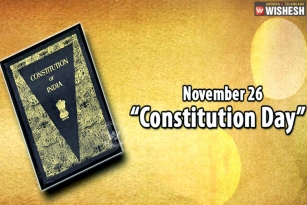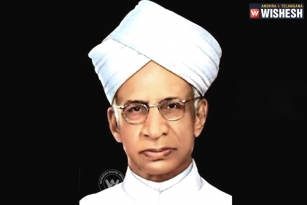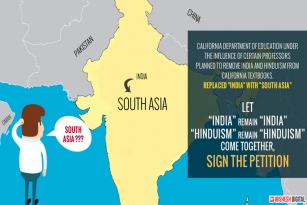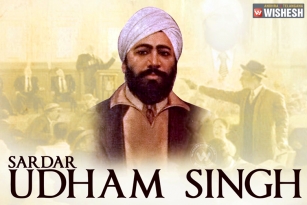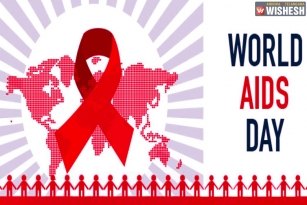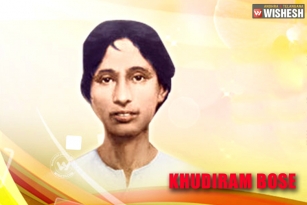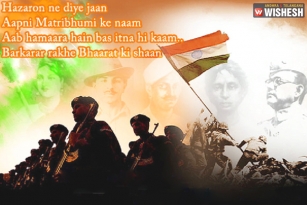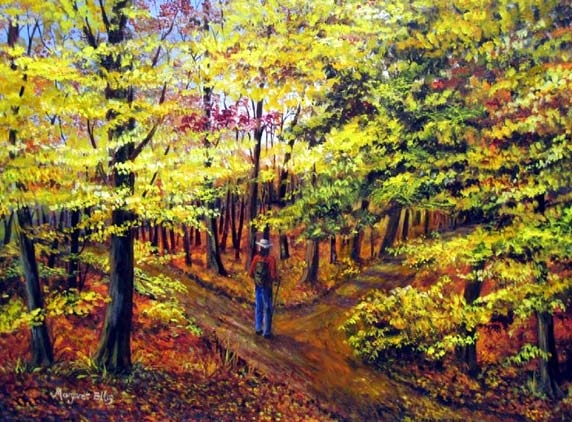
TWO roads diverged in a yellow wood,
And sorry I could not travel both
And be one traveler, long I stood
And looked down one as far as I could
To where it bent in the undergrowth;
Then took the other, as just as fair,
And having perhaps the better claim,
Because it was grassy and wanted wear;
Though as for that the passing there
Had worn them really about the same,
And both that morning equally lay
In leaves no step had trodden black.
Oh, I kept the first for another day!
Yet knowing how way leads on to way,
I doubted if I should ever come back.
I shall be telling this with a sigh
Somewhere ages and ages hence:
Two roads diverged in a wood, and I—
I took the one less traveled by,
And that has made all the difference.
Robert Frost has been my favorite poet for his simplistic style of putting words together so articulately that even a child can understand and yet there is a deeper understanding that a man should seek with his poems. What comes to mind when I think of Frost is his unforgettable poem "The Road Not Taken". A poem that was published in 1916.
An Iambic tetrameter so beautiful that you get lost in the words, The Road Not Taken explains the diffculty in making choices in everyday life. The simplicity of the poem has also caused the poem to be one of the most misunderstood ones of all time. Most people understand it to be a poem that teaches you to take the less trodden path but that is the gravest mistake of your wildest imaginations.
The author in the poem is faced with the dilemma of making a choice; which path to take. He doesn't know what repercussions he has to face with his choice since he could see only until where the paths bent into the undergrowth.
But then he takes the one that he though needs wear and was grassy but in fact it was "worn just about the same". He just made a choice by instinct and took the one slightly less traveled, not so much as to make a difference.
These paths are metaphors to the everyday decisions that are very similar and you you have trouble chosing either one of them being worried you might choose the wrong one. The poem is about the first road that the author wants to comeback to, The Road Not Taken.
In the third stanza he says he kept the first road for another day but he was unsure if he would return to the same place again to make the choice. This is the situation that we all face. We might not be given a second chance to make the decision. If you make it, you will have to live with it.
The last stanza concentrates on the author contemplating his future where he would tell his story with a sigh that he has chosen the road that was less traveled by, which made the whole difference in his life. Sigh here is the key to understanding this poem. This sigh is expected to happen in the future and he doesn't know what would happen. With there being no sign of any negativity in the early lines, we may understand this sigh as a sigh of relief. And the difference is
The poem describes how fallible men are. When you retell a story, there is a high likeliness that you would add a pinch of positivity to one of your choices, make it the most important one in your story though there is much more to your path to success than your choice. By making it sound like a path less traveled, you are making it adventurous and individialistic though it is not. The tricky part of the poem lies in the time frame. The point that he will describe the outcome in the future says that the difference and the sigh are positive. Until and unless he goes down the path he will not know what it holds, he can never know for real.
(AW- Anil)




